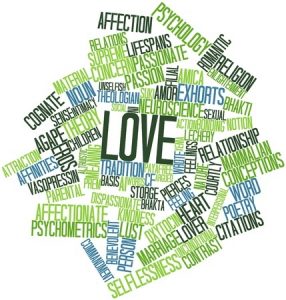A few years ago, I was a member of a counseling association for Christian therapists and pastors. This association supported its members with continuing education, scholarly research and ethical guidelines for good practice. I went to a few of the national events and conferences and usually left smarter and more motivated.
One year, however, I got a flyer for an upcoming conference with the name of a plenary speaker from my area. He was wildly popular, and had written many books. Though this talented speaker had a large following, I knew a different side of him. A side of him only seen behind closed doors. I had worked with people who knew him to be manipulative, abrasive and famously controlling. My clients and colleagues described him as someone who created a climate of fear through verbal abuse, arrogant bullying, and narcissistic control. I would think, “Note to self, avoid this bozo at all costs!”
So, when I saw his name and face on the pamphlet as a plenary speaker for my beloved Christian counseling organization, I was shocked. How could a counseling organization promote him? How could they invite a wolf into the sheep fold? Why couldn’t they see past his polished persona and see the wake of relational wreckage he left trailing behind him? I trusted this organization, and was baffled by their decision to invite him to speak at their conference. I thought to myself, “out of all the people in the Christian community, it should be the counselors who can see through narcissism. It should be the counselors who recognize abusers when we see them. Why are they drinking his kool-aid?”

I was prompted to write them a letter expressing my concern, but talked myself out of it. I thought to myself, “why would they listen to me? I’m a no-name,” and “if that’s the direction they are going, then good riddance to bad rubbish!” I’m sorry I talked myself out of it. Neither was a healthy or loving way to respond. Instead of communicating my concern, I just didn’t renew my membership that year. Kind of passive- aggressive, I know.

I should have written that letter, if only for the bragging rights of later being able to say, “I told you so!” Because, about a year later that popular speaker was sent packing and was relieved from his position. He was also found to have participated in plagiarism and unethical use of donated funds. The victims of his financial and spiritual abuse came out publicly about their experiences, and the guy lost all credibility.
Why is this important to you? Well, if you’re living with a Narcissist, and you feel like you’re going crazy, and even the marriage counselor doesn’t see why you’re so upset- I get it. If your narcissist looks great from the outside- good dad, good Christian, good provider, good guy- then you may think no one will believe the pain you experience behind closed doors. Unfortunately well-meaning Christians, pastors, counselors, even whole organizations, can get hood-winkled, Bamboozled, and Cully-gulled by all the charming flim-flam.

Narcissistic people can be very convincing when they want something. They can shine the light on their good side so brightly, that it blinds everyone from seeing their bad side. When this happens, the spouse of the narcissist ends up feeling worse than before. The spouse may say, “I finally got him/her to go to counseling, and now he/she got the counselor to side against me. No one sees how she/he really is at home!”
What to do if Your Counselor or Pastor is Fooled:
Don’t chicken out like I did. Be brave and say what you need to say. It’s important for you to do the following:
- Address this trickery during your counseling session. The counselor cannot know what they do not know, so it is up to you address your frustrations.
- Don’t wait for the pastor or counselor to rescue you, side with you, or confront your partner. Only you can do your work.
- Bring specific actions that you consider to be hostile, controlling, abusive, mean spirited, badgering or manipulative to the session, and talk about them with the counselor. Point out the kind of behavior that is unacceptable to you.
- Be honest about what is happening at home, and how you want help confronting these unacceptable behaviors.
No, your narcissist will not like this, and may deny, cast blame or even retaliate. However, it is important for you to shed light on your relationship and get the support from professionals that seek to live in that light. If the counselor is still hesitant to recognize the destructiveness present in the marriage, then it may be time to find a new counselor. I would recommend a counselor who has experience treating issues related to domestic violence, co-dependence, and narcissism.




